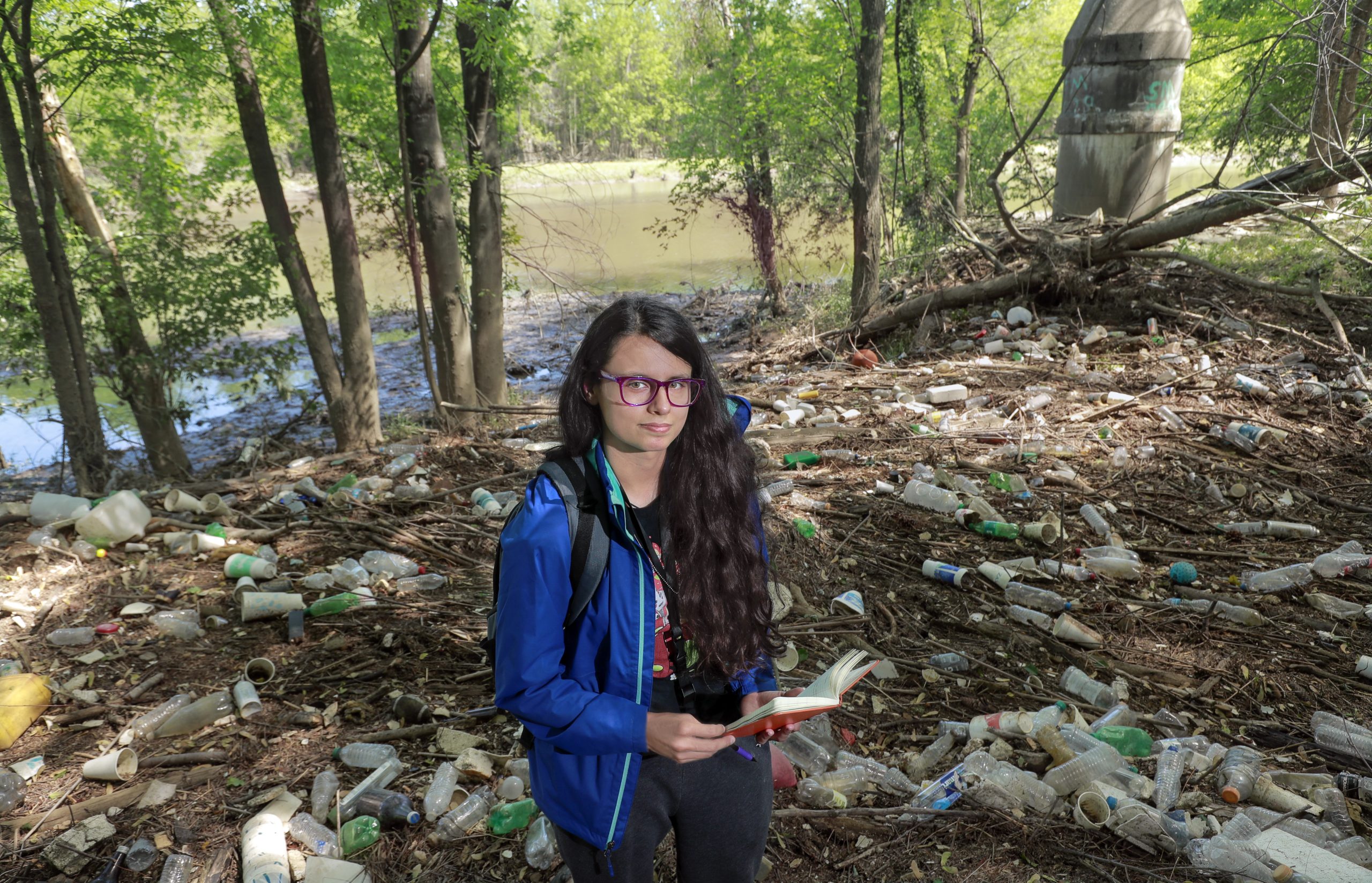UA Little Rock student studies microplastics in Little Rock wetlands
Nearly 73 percent of all water in the Little Rock metropolitan area drains into a watershed located in the Fourche Creek wetlands. Harmful objects are often found within it, including small plastics that often go unnoticed but can have a major impact on the environment.
Juliann Fiallos, a junior geology/biology double major from Ansonia, Connecticut, spent several months this spring examining the levels and impact of microplastics in the Fourche Creek wetlands. Microplastics are microscopic pieces of plastic that are released into the environment as plastic products slowly begin to break down.
“Plastics are a modern product that take a significantly long time, longer than our own lifetimes, to break down,” Fiallos said. “Even though microplastics are so small, we’ve had plastics for long enough now that it begins to build up. We want to know how much we’re dealing with now.”
During her research, Fiallos collected monthly samples of water and sediment from the wetlands to gain a better understanding of the overall water quality as well as the amount of microplastics present in both.
As microplastics are increasingly used in everyday products, it’s expected that they will be found in increased levels in the wetlands. Because they break down so slowly, buildup occurs, which in turn can cause a myriad of issues for the environment as well as human health, Fiallos said.
Dr. Laura Ruhl, associate professor in UA Little Rock’s Department of Earth Sciences, served as the faculty mentor for Fiallos, who gained invaluable field research experience.
“I’ve learned that you definitely want to question,” Fiallos said. “The first part of finding an answer is knowing that you’re asking the right questions. You might be wrong and that’s okay. Our question in this case is whether these microplastics are being filtered through the wetlands, or if they’re staying and building up in them.”
Aside from analyzing the level of plastics in the wetlands, Fiallos also studied other environmental forces. In particular, she looked at how storm systems affect water flow and trash build-up.
Fiallos presented her research at the Undergraduate Research and Creative Works Expo on April 18, where she placed first in the physical science category. She offers the following advice for students who also want to become involved in the research process.
“Don’t ever doubt yourself,” she said. “My parents never even graduated high school, and college seemed impossible to me for a long time. You know so much more than you think you know.”
